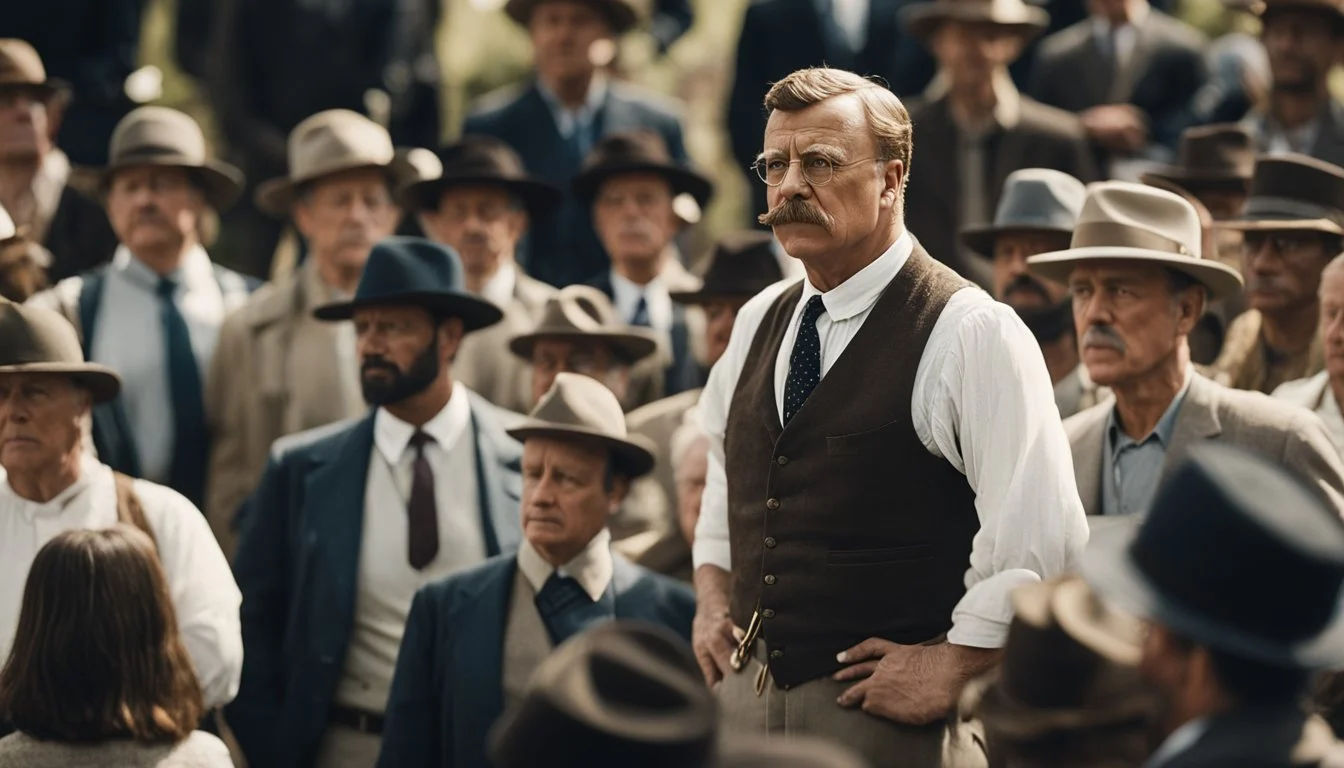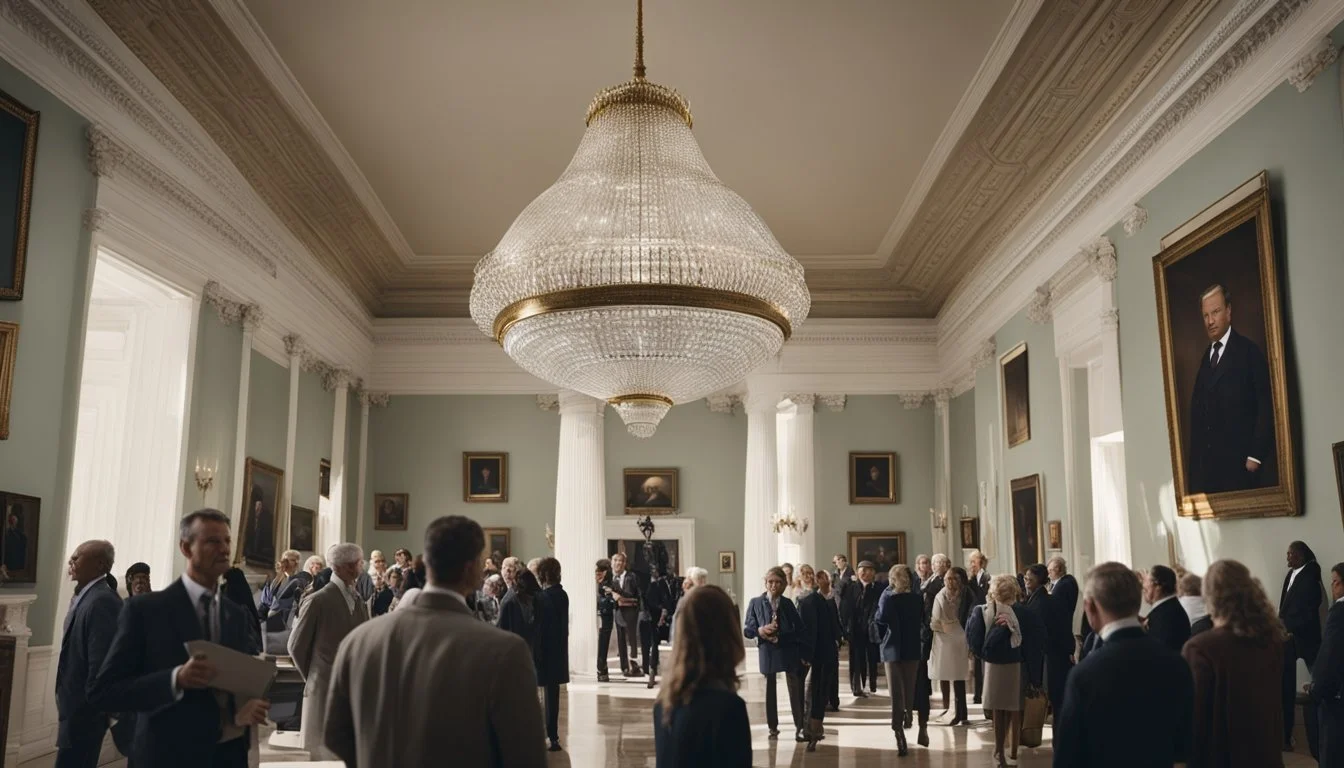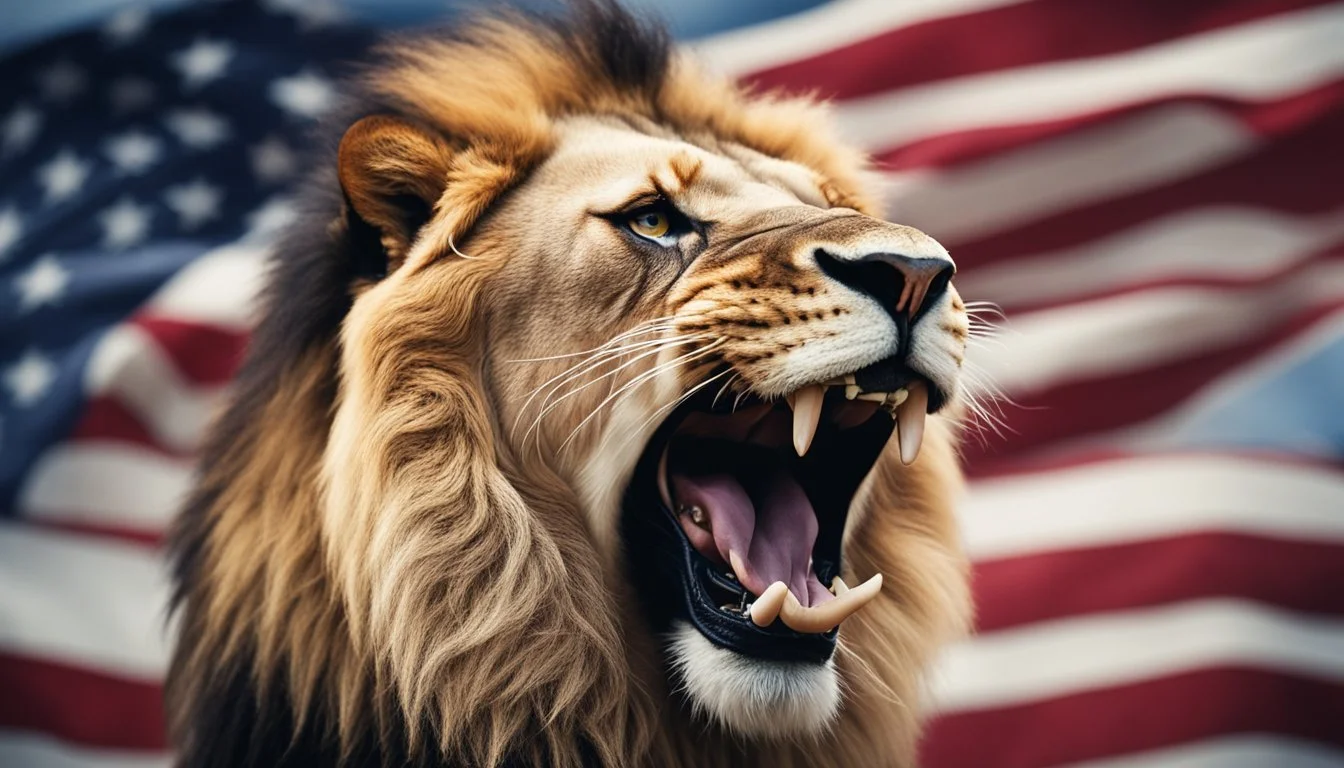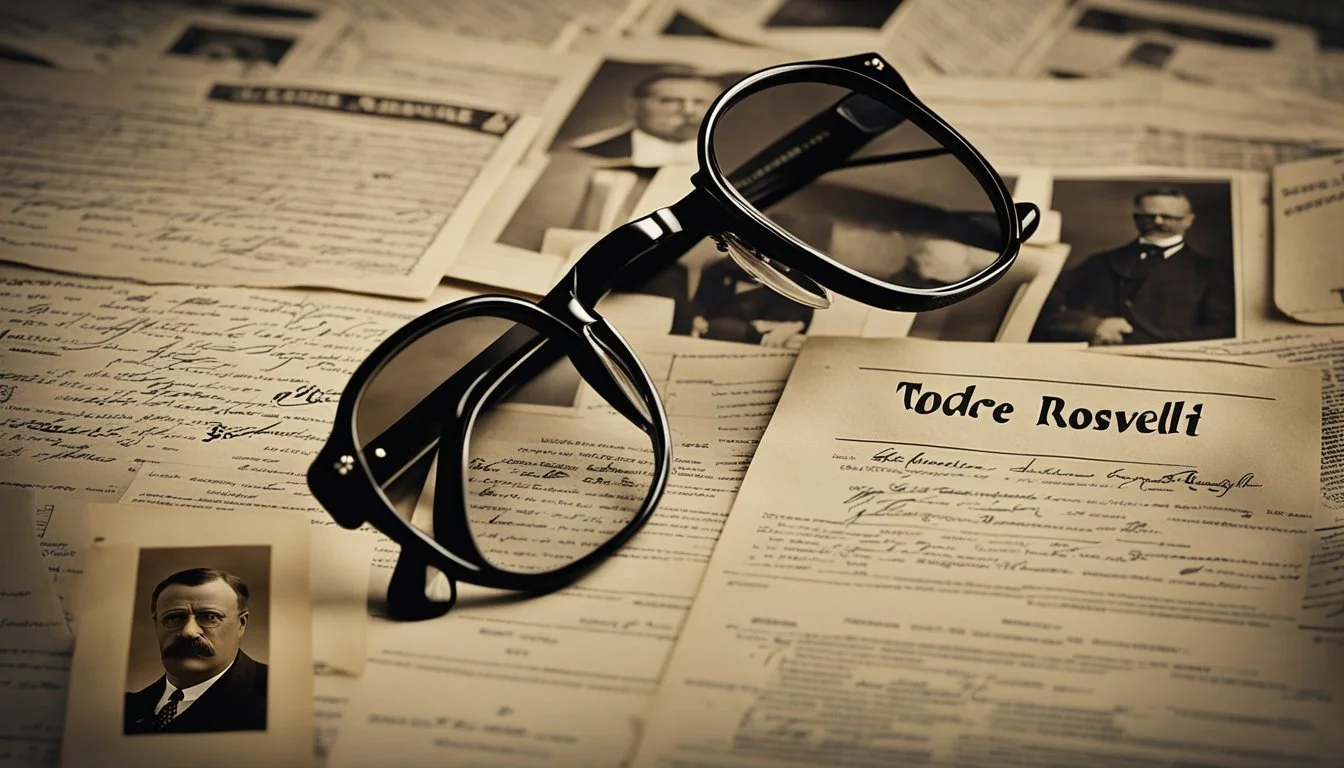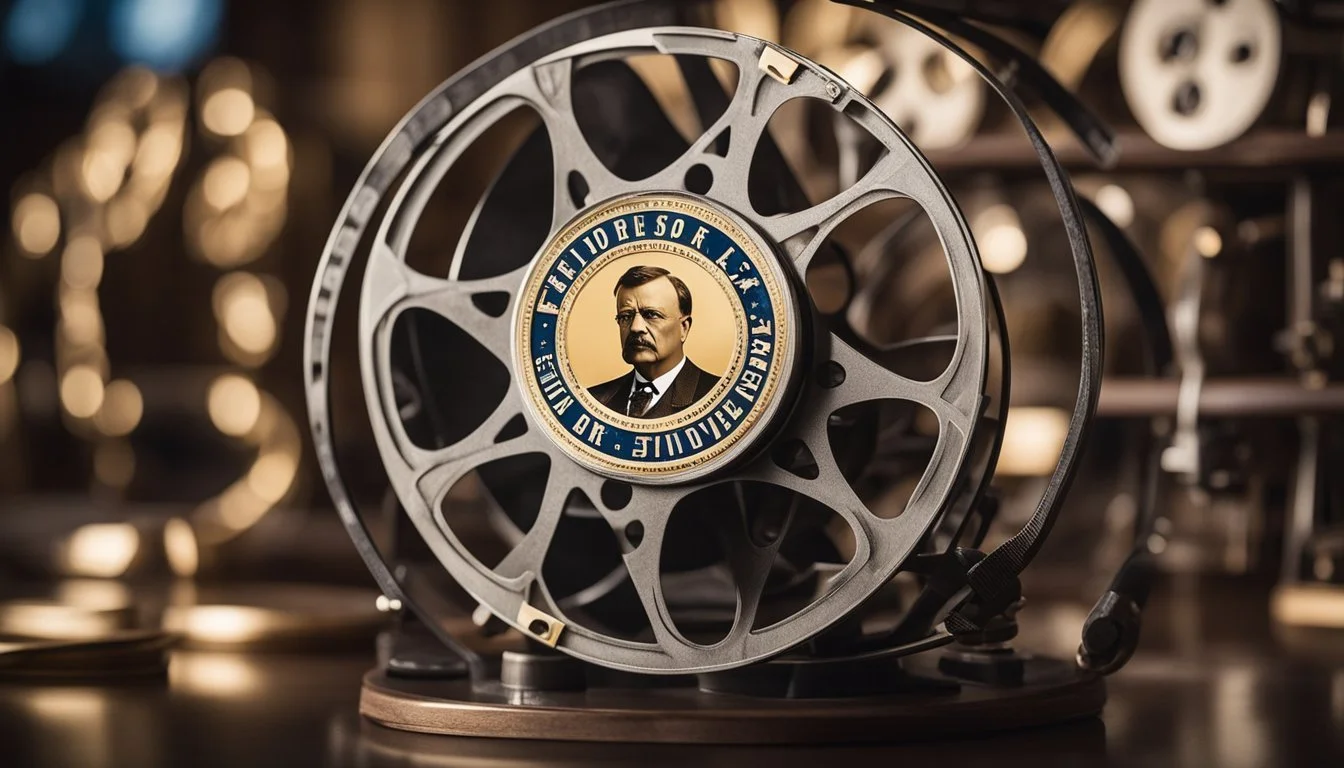9 Must-Watch Films About Theodore Roosevelt's Progressive Presidency
A Cinematic Journey Through the Bull Moose Era
Theodore Roosevelt, the 26th President of the United States, left an indelible mark on American history through his progressive reforms and dynamic leadership. His presidency from 1901 to 1909 was characterized by far-reaching domestic policies and assertive foreign diplomacy, earning him a place among the most influential figures of the early 20th century.
Films about Roosevelt's presidency offer viewers a captivating glimpse into the life and times of this larger-than-life leader, bringing his accomplishments and personality to the screen. These cinematic portrayals provide valuable insights into the Progressive Era, Roosevelt's conservation efforts, and his approach to wielding presidential power. From documentaries to dramatizations, these films showcase the multifaceted nature of Roosevelt's tenure and its lasting impact on American society.
1) The Rough Riders (1997 film)
"The Rough Riders" is a television miniseries that aired in 1997. It depicts the formation and exploits of Theodore Roosevelt's volunteer cavalry regiment during the Spanish-American War of 1898.
Directed by John Milius, the film stars Tom Berenger as Roosevelt. The cast also includes Sam Elliott, Gary Busey, and Brad Johnson portraying key members of the regiment.
The miniseries focuses on Roosevelt's resignation as Undersecretary of the Navy to lead the 1st U.S. Volunteer Cavalry. It showcases the unit's training and their pivotal role in the Battle of San Juan Hill.
"The Rough Riders" highlights Roosevelt's leadership and the bravery of his diverse group of volunteers. The film portrays the challenges they faced and their contributions to the American victory in Cuba.
This historical drama combines action sequences with character development, offering insight into Roosevelt's early military career. It serves as a dramatized account of events that contributed to Roosevelt's rising national profile.
2) Mornings on Horseback (Book by David McCullough)
David McCullough's "Mornings on Horseback" offers a captivating glimpse into the early life of Theodore Roosevelt. Published in 1981, this National Book Award-winning biography focuses on Roosevelt's formative years.
The book explores Roosevelt's transformation from a sickly boy into the vigorous man who would become president. McCullough delves into Roosevelt's childhood, family dynamics, and the experiences that shaped his character.
"Mornings on Horseback" paints a vivid picture of young Theodore's struggle with asthma and his determination to lead a strenuous life. It examines the influence of his family, particularly his father, on his development.
McCullough's work provides valuable insights into the factors that molded Roosevelt's personality and political ideologies. The biography covers Roosevelt's youth up to his early political career, setting the stage for his future presidency.
While not a film, this book serves as an essential resource for understanding Theodore Roosevelt's background and the foundations of his progressive policies.
More information on "Mornings on Horseback"
3) Ken Burns: The Roosevelts (TV Series) [2014]
Ken Burns' documentary series "The Roosevelts: An Intimate History" offers a comprehensive look at the influential Roosevelt family. The seven-part series focuses on Theodore, Franklin, and Eleanor Roosevelt, weaving their individual stories into a single narrative.
The series explores Theodore Roosevelt's presidency and progressive policies in detail. It examines his efforts to regulate big business, conserve natural resources, and expand America's role on the world stage.
Burns' trademark style combines archival footage, photographs, and expert commentary to bring the Roosevelt era to life. The series provides valuable context for understanding Theodore Roosevelt's impact on American politics and society.
While not exclusively about Theodore Roosevelt, the series dedicates significant time to his presidency and legacy. It offers insights into his personality, leadership style, and the challenges he faced as president.
"The Roosevelts" received critical acclaim for its in-depth approach and compelling storytelling. It serves as an excellent resource for those interested in Theodore Roosevelt's progressive presidency and its lasting influence.
Learn more about "The Roosevelts: An Intimate History" on IMDb
4) Teddy Roosevelt: An American Lion (Documentary) [2003]
This History Channel documentary offers a comprehensive look at Theodore Roosevelt's life and presidency. Narrated by Richard Dreyfuss, it chronicles Roosevelt's journey from his early years to his time in the White House.
The film explores Roosevelt's pivotal moments, including the tragic day he lost both his mother and first wife. It delves into his rapid political ascent and the assassination of President McKinley that thrust him into the presidency.
"An American Lion" highlights Roosevelt's progressive policies, such as trust-busting and labor reforms. It showcases his larger-than-life personality and the impact he had on shaping modern America.
The documentary provides a balanced view of Roosevelt, acknowledging both his achievements and controversies. It uses historical footage and expert commentary to paint a vivid picture of this influential president.
5) TR: The Story of Theodore Roosevelt (Biography by Nathan Miller)
Nathan Miller's "Theodore Roosevelt: A Life" offers a comprehensive look at the 26th president. Published in 1992, this single-volume biography was the first of its kind in over three decades.
Miller, a four-time Pulitzer Prize nominee, presents Roosevelt's life in a straightforward manner. The book covers TR's entire life, from his childhood to his presidency and beyond.
The biography provides a balanced view of Roosevelt's accomplishments and controversies. It explores his role as a progressive reformer and his impact on American politics.
Miller's work is well-researched and accessible to general readers. It avoids sensationalism, focusing instead on presenting facts about Roosevelt's life and career.
The book received positive reviews for its clear prose and thorough examination of Roosevelt's complex personality. It remains a respected source for those seeking to understand TR's life and legacy.
More information on Nathan Miller's biography
6) The Bully Pulpit: Theodore Roosevelt, William Howard Taft, and the Golden Age of Journalism (Book by Doris Kearns Goodwin)
This book by Pulitzer Prize-winning author Doris Kearns Goodwin explores the relationship between Theodore Roosevelt and William Howard Taft. Published in 2013, it provides valuable insights into Roosevelt's progressive presidency.
Goodwin examines the close friendship between Roosevelt and Taft, which eventually fractured as they became political rivals. The book delves into their differing approaches to progressive reforms and the impact this had on their careers.
The author also highlights the role of investigative journalists during this era. She illustrates how these reporters influenced public opinion and supported Roosevelt's progressive agenda.
At 909 pages, "The Bully Pulpit" offers a comprehensive look at Roosevelt's presidency and the political landscape of early 20th century America. It draws on extensive research to paint a vivid picture of this transformative period in U.S. history.
Goodwin's work received critical acclaim and was awarded the Carnegie Medal. It serves as an invaluable resource for those interested in Roosevelt's presidency and the Progressive Era.
More information on "The Bully Pulpit" by Doris Kearns Goodwin
7) The Wind and the Lion (1975)
"The Wind and the Lion" is a historical adventure film loosely based on the 1904 Perdicaris incident. The movie stars Sean Connery as Mulai Ahmed er Raisuli, a Moroccan Berber leader who kidnaps an American woman and her children.
The film incorporates President Theodore Roosevelt, played by Brian Keith, as a key character. Roosevelt's response to the kidnapping becomes a central element of the plot, showcasing his diplomatic approach and "big stick" foreign policy.
While not entirely historically accurate, the film captures the spirit of Roosevelt's presidency and his approach to international affairs. It portrays Roosevelt as a strong, decisive leader navigating complex international situations.
The movie blends action, drama, and historical elements to create an engaging narrative. It offers a fictionalized glimpse into Roosevelt's handling of foreign crises during his progressive presidency.
8) The Progressive Era (Book by Murray Rothbard)
Murray Rothbard's posthumous work "The Progressive Era" offers a critical examination of early 20th century American politics and economics. Published in 2017, the book analyzes the roots of modern state-economy relationships.
Rothbard argues that Progressivism led to increased government intervention and institutionalized racism. He explores how this era shaped policies on immigration, labor unions, and American expansionism abroad.
The book delves into the tripartite alliance between big government, big business, and big unions. It also discusses the promotion of military virtues and conscription during this period.
Edited by Patrick Newman, "The Progressive Era" draws on Rothbard's extensive research begun in the 1970s. It provides insight into a transformative time in American history that continues to influence current political and economic structures.
More information on Murray Rothbard
9) Colonel Roosevelt: The Last Adventure of Theodore Roosevelt (Biography by Edmund Morris)
Edmund Morris completed his acclaimed Theodore Roosevelt trilogy with "Colonel Roosevelt" in 2010. This final volume covers the last decade of Roosevelt's life, from 1909 to 1919.
The book details Roosevelt's post-presidency adventures, including his African safari and South American expedition. It also explores his political activities, such as his 1912 presidential campaign as leader of the Progressive Party.
Morris vividly portrays Roosevelt's larger-than-life personality and boundless energy during these years. He examines Roosevelt's complex relationships with family members, political allies, and rivals.
The biography offers insight into Roosevelt's evolving views on conservation, social justice, and America's role in world affairs. It culminates with his passionate advocacy for U.S. entry into World War I.
"Colonel Roosevelt" provides a fitting conclusion to Morris's comprehensive portrait of this influential president and American icon. The book earned widespread critical acclaim for its thorough research and engaging prose.
Learn more about Edmund Morris's "Colonel Roosevelt" on Goodreads
Theodore Roosevelt's Impact on the Progressive Movement
Theodore Roosevelt profoundly shaped the Progressive Era through his legislative agenda and philosophy on government. His actions as president expanded federal power and established new protections for citizens and the environment.
Key Legislative Achievements
Roosevelt championed several landmark laws that advanced progressive goals. The Pure Food and Drug Act of 1906 established federal inspection of meat products and prohibited mislabeled food and drugs. The Hepburn Act strengthened the Interstate Commerce Commission's authority to regulate railroad rates.
Roosevelt also pushed for conservation, setting aside over 230 million acres of public lands. He established 150 national forests, 51 federal bird reserves, and 5 national parks. The Antiquities Act of 1906 allowed him to protect historic and scientific sites as national monuments.
Labor reforms included the Employers' Liability Act and restrictions on child labor. Roosevelt's "trust-busting" efforts broke up powerful monopolies like Standard Oil and enforced antitrust laws.
Roosevelt's Philosophy on Government
Roosevelt believed in a "Square Deal" for all Americans, balancing the interests of business, consumers, and labor. He saw the federal government as a powerful force for social good and economic fairness.
Unlike laissez-faire conservatives, Roosevelt supported an active regulatory role for government. He argued the state should protect the welfare of workers, ensure safe products, and preserve natural resources for future generations.
Roosevelt's progressive vision expanded presidential power. He used the "bully pulpit" of his office to rally public support for reforms. His actions set precedents for a more activist federal government in the 20th century.
Portrayal of Theodore Roosevelt in Films
Theodore Roosevelt's larger-than-life persona has captivated filmmakers for decades. His dynamic character and progressive presidency have been depicted in various cinematic works, ranging from documentaries to dramatized portrayals.
Historical Accuracy
Films about Theodore Roosevelt often strive for historical authenticity. Documentaries like Ken Burns' "The Roosevelts: An Intimate History" meticulously research and present factual information about Roosevelt's life and presidency. This seven-part series covers over a century of Roosevelt family history, providing a comprehensive look at Theodore's political career and personal life.
Some dramatic films take creative liberties while maintaining the essence of Roosevelt's character and key historical events. The miniseries "Rough Riders" focuses on Roosevelt's military exploits during the Spanish-American War, showcasing his bravery at the Battle of San Juan Hill.
Notable Performances by Actors
Several acclaimed actors have taken on the challenge of portraying Theodore Roosevelt on screen. Tom Berenger's performance in "Rough Riders" captured Roosevelt's vigorous spirit and determination. The actor's enthusiasm for the role stemmed from a shared interest in Roosevelt's multifaceted life as an environmental crusader, political reformer, and adventurer.
Other notable portrayals include those in historical dramas and biopics. These performances often highlight Roosevelt's charismatic personality, his distinctive speaking style, and his progressive political ideals. Actors strive to embody Roosevelt's energy and conviction, bringing to life his famous "speak softly and carry a big stick" approach to leadership.
The Cultural Legacy of Roosevelt's Presidency
Theodore Roosevelt's presidency left an indelible mark on American culture and politics. His progressive policies and larger-than-life persona continue to shape public discourse and popular imagination.
Influence on Modern Politics
Roosevelt's progressive reforms set precedents for future administrations. His "Square Deal" policies aimed at regulating big business and protecting consumers remain relevant today. Many politicians invoke Roosevelt's trust-busting legacy when addressing corporate monopolies.
The expansion of federal power during his tenure paved the way for later programs like the New Deal. Roosevelt's conservation efforts also laid the groundwork for modern environmental movements.
His assertive foreign policy and concept of the U.S. as a global power still influence American diplomacy. The "speak softly and carry a big stick" approach remains a touchstone in foreign affairs debates.
Representation in Popular Culture
Roosevelt's adventurous spirit and colorful personality made him a favorite subject in media and entertainment. His exploits as a Rough Rider and big game hunter have been dramatized in numerous films and TV shows.
Books and documentaries frequently explore Roosevelt's life and presidency. His image as a rugged outdoorsman and reformer has become iconic in American culture.
Roosevelt's likeness on Mount Rushmore cements his place among the most revered U.S. presidents. His distinctive glasses, mustache, and "bully!" catchphrase are instantly recognizable cultural symbols.
Museums and historic sites dedicated to Roosevelt attract thousands of visitors annually, keeping his legacy alive for new generations.

